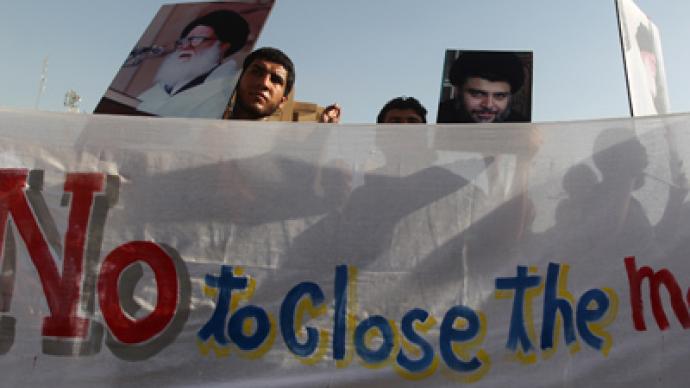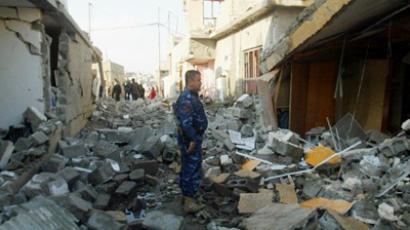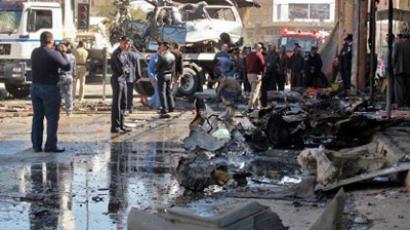Iraqi press crackdown: Police to close media agencies

Iraqi police are under orders to shut down a number of foreign and local media outlets across the country, reports Iraqi journalist rights group. The BBC and Voice of America are just some of the prominent television channels targeted by the order.
The Journalistic Freedoms Observatory (JFO) says it has obtained an official document ordering the closure of 44 different media outlets in Iraq.
The document was reportedly issued by Iraq’s Communications and Media Commission (CMC) and had been approved by the deputy interior minister. It calls on the Department of Relations and Media “to stop media cooperation with these agencies and to notify the police to ban these channels along with the necessity of informing the channels to contact the CMC.”
However, RT’s sources in Baghdad have not yet confirmed the validity of the document.The measure is the latest in press restrictions that have been criticized as “heavy-handed” by rights groups and journalists. Iraq’s government has introduced a number of regulations that many regard as putting the freedom of the press at risk in the country.
The followers of prominent Islamist cleric Muqtada al Sadr flocked to Baghdad’s central square on Wednesday to protest against what they see as a government crackdown on press freedom. They also called for a vote of no confidence against PM Nouri al-Maliki to be held in the country’s parliament. Al-Maliki is currently acting head of the CMC.
Much of the controversy centers around the so-called “Journalists’ rights law” introduced in November of last year. Journalists in the country have rallied against the legislation that is supposedly intended to protect them, branding it as restrictive.
A group of journalists have filed a lawsuit against the Iraqi government, calling for them to repeal the legislation.
The law styles itself as aimed at “ensuring the protection of journalists in the republic of Iraq,” but opposition have said the regulations it sets out are ambiguous and allow for government intervention.
Iraq’s Society for Defense of Press Freedom released a statement saying “the law is a clear violation of the Iraqi constitution. It added that the legislation also breaches Iraq’s international commitments especially with regard to the Universal Declaration of Human Rights and the International Covenant on Civil and Political Rights signed by the Iraqi government.”
The legislation says that journalists “may have access to reports information and official releases… unless the disclosure of mentioned material is harmful to national interests and is in conflict with the law.”
However, it does not specify to what the law is referring. The Committee to Protect Journalists (CPJ) stressed that the regulations purposely creates “unnecessary barriers to access to information,” the CPJ states.
The Iraqi government also reserves the right to intervene if a news agency encourages sectarian violence. But it refrains from providing an explanation of what would constitute an incitement of sectarian violenceProminent Baghdad journalist Sarmad al-Taee told the JFO that “immediate talks between the Iraqi media and CMC to review the murky relationship between the CMC and the private media sector are necessary.”














